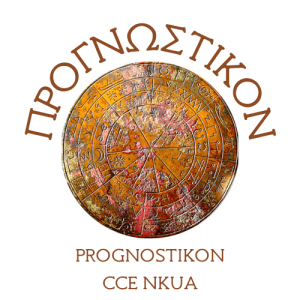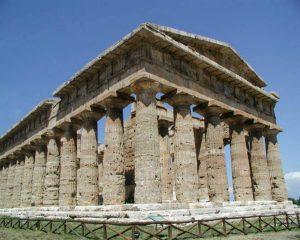By D. Staikos
In addition, literary sources speak of pre-questioning sessions taking place before any piece of advice was given. All the responses received from the concerned individual to these preliminary questions were transmitted to the priests - prophets, who in turn evaluated the information in a sober, “rational” fashion, under neither divine (possession or trance state) or substance influence. Actually, it was they who had complete control over the consulting procedure and not Pythia herself, for whom there is a common yet false impression that she used to respond directly to the inquirer. Plato is certainly clear on this matter, in his Socratic dialogue Timaeus (72b):
«οὓς μάντεις αὐτοὺς ὀνομάζουσίν τινες, τὸ πᾶν ἠγνοηκότες ὅτι τῆς δι’ αἰνιγμῶν οὗτοι φήμης καὶ φαντάσεως ὑποκριταί, καὶ οὔτι μάντεις, προφῆται δὲ μαντευομένων δικαιότατα ὀνομάζοιντ’ ἄν»
“Some people call these prophets diviners, but they are ignorant of the fact that these men are the interpreters of an ambiguous statement or phenomenon and are most correctly called not diviners but spokesmen of the inspired”
Concerning the contradiction between the supernatural origin (and consequently, irrational nature) of the “signs” and the rational data evaluation process held by the oracles’ priests - prophets, it cannot be denied that some divination methods (e.g. hepatoscopy - the inspection of sacrificial animals’ entrails and cleromancy - the casting of lots) cannot stand the test of rationality. Yet, it is not without grounds that the existing literary sources used the references to these divination methods mainly as a rhetorical device for telling a story, that would appeal to their average contemporaries, considering their religious superstitions and psychological needs.
To summarize all mentioned above, divination was a procedure carried out in several stages: to begin with, it was about perceiving the “signs” and afterwards, about processing and turning them into meaningful information. In the case of oracles, their structure was so developed and their processes so information - intensive, that they bear significant resemblance to today’s think tanks or consulting firms; not only did they gather data specific to the question laid before them, but also general information, regarding the sociopolitical status of the day. So, before the priests - prophets came up with an answer, usually in the form of advice, they had already framed the environment in which a decision was to be made and defined the exact aspects of the case under review. What stems from this analysis is that divination can justifiably be considered modern forecasting’s predecessor, as all the previously stated steps can also be identified in contemporary forecasting methodology: the generation of an information set and the judgmental process, in search of causal connections between the information set and the forecast, from which an answer in the form of consultancy is derived. The final output is then left to the inquirer, who is responsible for the decision-making part of the forecast, by choosing between the alternative courses of action.
References
Beerden, K. (2014). Ancient Greek futures: diminishing uncertainties by means of divination. Futures, 60, pp 23-29
Whittaker, C. R. (1965). The Delphic Oracle: Belief and Behaviour in Ancient Greece - and Africa. Harvard Theological Review, 58, pp 21-47



